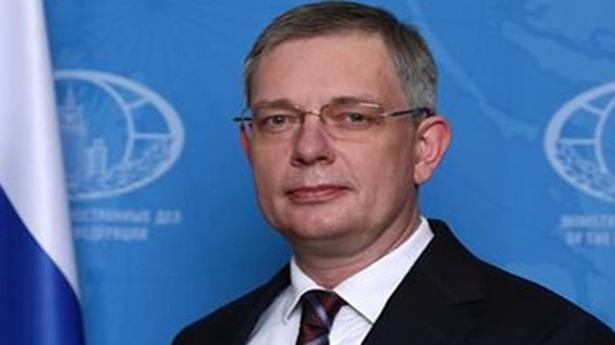India has maintained that the purchase of Russian crude is not made through government intervention and the supply is being sourced from the global market
India has maintained that the purchase of Russian crude is not made through government intervention and the supply is being sourced from the global market
Moscow would terminate energy supply to countries if it feels the prices offered were unfair and if they join the western campaign to stop Russian energy flow, said Russian Ambassador to India Denis Alipov.
Addressing a press conference in New Delhi on September 23, 2022, Mr Alipov said that Russia and India have both been asking for a cessation to hostilities but Russia had to act as it would have been “irresponsible” to not respond against what he described as “totally unacceptable actions” from U.S. and the NATO.
“Russia won’t trade and cooperate to her detriment. If we consider that the prices are unfair to us, we would simply stop supplying the oil to the buyer and to those countries that join the US initiatives on the price cap,” said Mr Alipov in his comments at the press conference.
The G7 Finance Ministers on September 2 had declared that they would impose a price cap on Russian crude supply which was being made available at a discount to buyers like India and China. The position was emphasised upon subsequently by several officials including by Executive Vice-President of European Commission Valdis Dombrovskis who discussed the price cap for Russian oil with Commerce and Industry Minister Piyush Goyal on Wednesday in Bali and described it as a step to “help tackle global energy inflation.”
Mr Alipov however argued that pursuing the price cap would push the global energy market into greater volatility and added, “I believe it would create a very acute shortage of supplies in global market and ultimately the price of oil globally would sharply go up.” He emphasised that India is expected to act to safeguard its interest as far as securing energy supply is concerned and reminded that Russian energy continues to flow into the European market.
The strident comment from the senior-most Russian diplomat stationed in India added to the atmospherics that were built by Prime Minister Narendra Modi’s reminder to President Vladimir Putin about the urgent need to end the war in Ukraine which was further amplified by External Affairs Minister Dr S Jaishankar who addressed the UN Security Council — a day after President Putin announced “partial mobilisation” – and described the coming days as “disturbing”.
The Government of India has maintained that the purchase of Russian crude is not made through government intervention and the supply is being sourced from the global market. Foreign Secretary Vinay Mohan Kwatra reminded last week that India is not a member of the G7 and explained , “…When Indian entities go out and try to respond to India’s needs of energy security and procure oil, they essentially procure it from the market.”
The Indian market’s outlook for Russian ESPO (Eastern Siberian Pacific Ocean) crude however is less optimistic, a news report from Reuters informed on Friday. In August Indian entities purchased 3.55 million tonnes of Russian crude but so far in September the purchase has remained in the region of 2 million tonnes. In comparison, India’s purchase of African crude has hit 2.35 million tonnes in September over 1.16 million tonnes in August. Industry sources blamed the dip in purchase of Russian crude to higher freight rates which is cooling India’s interest in Russian energy.
Mr Alipov maintained that there is no divergence in the Indian and Russian approaches to the Ukraine crisis and said that Moscow just like Delhi has been committed to an end to the crisis at the earliest but blamed the US and NATO for the “greatest miscalculation”. “US and NATO have long maintained dedicated springboard against our territory in Ukraine. It would have been completely irresponsible if we had to sit idly in the face of such challenges,” said Mr Alipov.



